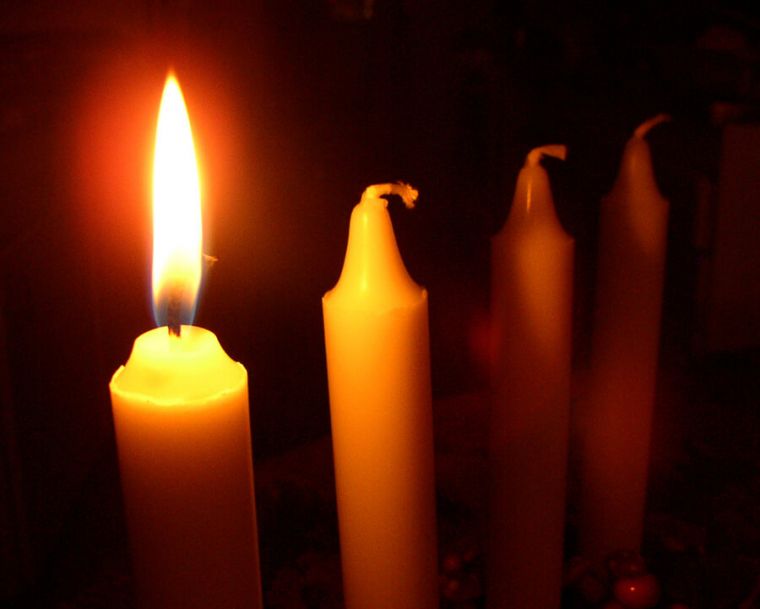When Does Advent Start? And 3 Reasons Christians Should Celebrate The Season

The annual game of spot-the-inappropriately-early-Christmas-display has taken place again. Supermarkets think Christmas begins some time in October, though I've heard of cards being on sale in August.
Many Christians try to resist the commercialisation of the season at the same time as enjoying it. We don't live in a bubble; we're part of society, and we can be caught up in the buzz and excitement of parties and gift-giving as well. But Christmas just means more to believers. And for us, the season begins this Sunday, Advent Sunday.
Advent is observed in church on the four Sundays leading up to Christmas. Many churches have Advent wreaths with candles in them – perhaps four red ones, one of which is lit on each Sunday, and a white one for Christmas Day. Christians from liturgical traditions might see different colours being used – purple or blue, signifying seriousness and repentance, and rose, signifying rejoicing.
But why celebrate Advent at all? There are three reasons.
1. It's an act of resistance.
Christmas has become more and more a commercial enterprise, hijacked by money-makers. In some ways that's OK – it gives the Church the chance to enter the market-place and offer something specifically Christian to a secular society. But the weeks before Christmas are often a worrying and burdensome time as people plan the perfect Christmas, worry that it won't be perfect and spend too much money. Advent, the Christian season, is not commercial at all; the only thing to sell is Advent Calendars. So for Christians to take part in Advent – reading particular parts of Scripture, praying on particular themes and attending church where Advent is the subject – is a way of asserting that Christmas is spiritual. It is a way of guarding ourselves against the world's reduction of everything to economics.
2. It's a preparation for Christmas.
The best things in life are those we've waited for and worked for. Many of us quite like to be surprised with a good thing – a party laid on by our friends, or just an unexpected phone call – but we realise that the really big things in life are those we have prepared for. It's like Andy Murray's victory at the ATP World Tour Finals: he was on court for less than two hours, but there were years of disciplined struggle behind him.
Christmas doesn't really take that much effort – though for busy families it might seem like that. But neither should it be something we take for granted. The first Christmas was the culmination of centuries of God's unfolding plan for humanity. All through the long history of Israel, he had been leading up to this moment. Just as we don't do Easter Sunday without Good Friday, we shouldn't do Christmas without Advent.
3. It's a spiritual discipline.
Some churches stick closely to the liturgical year, while others organise their Sundays differently. But Advent helps approach Christmas with a sense of what it really means – and what it meant. Christians believe Jesus was born at a particular time and place, and that a real change took place in the world then. So when we look forward to his coming at Christmas, we are putting ourselves in the position of those who waited for his first coming – the shepherds, the wise men, the watchers like Simeon and Anna. So one theme is watchful expectation; we wait to see what God will do. Another theme is judgment: we look forward not just to his first coming but to his second. And we can think of a world without Christ, and be deeply thankful that he came into it to rescue and redeem.
The Advent season is a gift of God to help us stay faithful in a world that pays him too little attention.
Follow Mark Woods on Twitter: @RevMarkWoods











